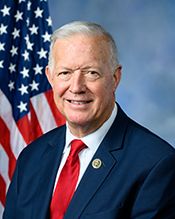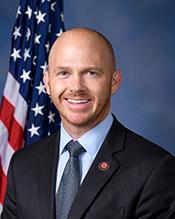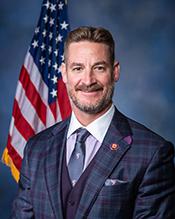0
0
0
Defund NPR Act
5/17/2024, 4:05 AM
Summary of Bill HR 8083
Bill 118 hr 8083, also known as the Defund NPR Act, is a piece of legislation introduced in the US Congress with the aim of cutting federal funding to National Public Radio (NPR). The bill was introduced by Representative Jim Banks from Indiana.
The main purpose of the bill is to eliminate any federal funding that NPR receives, which currently amounts to around $100 million annually. Supporters of the bill argue that NPR should not be receiving taxpayer dollars, as it is a private organization that can sustain itself through other means such as donations and sponsorships.
Opponents of the bill, however, argue that NPR provides valuable and unbiased news coverage to millions of Americans, especially in rural and underserved areas. They believe that cutting funding to NPR would limit access to important news and information for many people. The Defund NPR Act has sparked a heated debate in Congress, with lawmakers on both sides of the aisle voicing their opinions on the issue. It remains to be seen whether the bill will gain enough support to pass and become law.
The main purpose of the bill is to eliminate any federal funding that NPR receives, which currently amounts to around $100 million annually. Supporters of the bill argue that NPR should not be receiving taxpayer dollars, as it is a private organization that can sustain itself through other means such as donations and sponsorships.
Opponents of the bill, however, argue that NPR provides valuable and unbiased news coverage to millions of Americans, especially in rural and underserved areas. They believe that cutting funding to NPR would limit access to important news and information for many people. The Defund NPR Act has sparked a heated debate in Congress, with lawmakers on both sides of the aisle voicing their opinions on the issue. It remains to be seen whether the bill will gain enough support to pass and become law.
Congressional Summary of HR 8083
Defund NPR Act
This bill prohibits federal funds from being made available to or used to support National Public Radio (NPR) or its successor organization, including federal funds that a public broadcast station pays to NPR as dues or to purchase NPR programming.
Read the Full Bill
Current Status of Bill HR 8083
Bill HR 8083 is currently in the status of Bill Introduced since April 19, 2024. Bill HR 8083 was introduced during Congress 118 and was introduced to the House on April 19, 2024. Bill HR 8083's most recent activity was Referred to the House Committee on Energy and Commerce. as of April 19, 2024
Bipartisan Support of Bill HR 8083
Total Number of Sponsors
1Democrat Sponsors
0Republican Sponsors
1Unaffiliated Sponsors
0Total Number of Cosponsors
15Democrat Cosponsors
0Republican Cosponsors
15Unaffiliated Cosponsors
0Policy Area and Potential Impact of Bill HR 8083
Primary Policy Focus
Science, Technology, CommunicationsAlternate Title(s) of Bill HR 8083
Defund NPR Act
Defund NPR Act
To prohibit Federal funding for National Public Radio, and for other purposes.
Comments
Sponsors and Cosponsors of HR 8083
Latest Bills
Providing amounts for the expenses of the Committee on Ethics in the One Hundred Nineteenth Congress.
Bill HRES 131December 12, 2025
Providing for congressional disapproval under chapter 8 of title 5, United States Code, of the rule submitted by the Bureau of Land Management relating to "Central Yukon Record of Decision and Approved Resource Management Plan".
Bill HJRES 106December 12, 2025
Expressing the sense of the House of Representatives in condemning the Government of the People's Republic of China for its harassment and efforts to intimidate American citizens and other individuals on United States soil with the goal of suppressing speech and narratives the People's Republic of China finds unwelcome.
Bill HRES 130December 12, 2025
Providing for congressional disapproval under chapter 8 of title 5, United States Code, of the rule submitted by the Bureau of Land Management relating to "North Dakota Field Office Record of Decision and Approved Resource Management Plan".
Bill HJRES 105December 12, 2025
Providing for congressional disapproval under chapter 8 of title 5, United States Code, of the rule submitted by the Bureau of Land Management relating to "Miles City Field Office Record of Decision and Approved Resource Management Plan Amendment".
Bill HJRES 104December 12, 2025
Providing amounts for the expenses of the Select Committee on the Strategic Competition Between the United States and the Chinese Communist Party in the One Hundred Nineteenth Congress.
Bill HRES 104December 12, 2025
Critical Access for Veterans Care Act
Bill S 1868December 12, 2025
OATH Act of 2025
Bill S 1665December 12, 2025
A bill to extend the authority for modifications to the Second Division Memorial in the District of Columbia.
Bill S 1353December 12, 2025
Saving Our Veterans Lives Act of 2025
Bill S 926December 12, 2025
NPR and PBS Act
Bill HR 1632December 15, 2023
NPR Act
Bill HR 8919December 29, 2022





